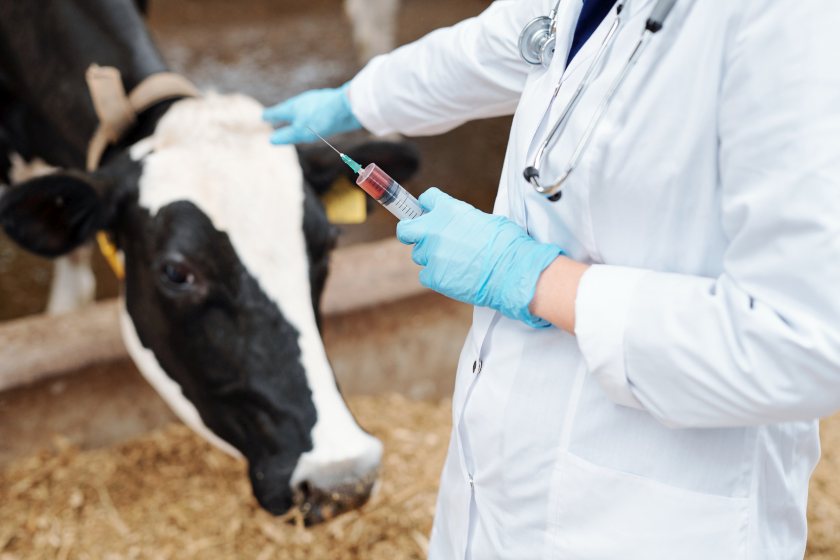UK farmers drive antibiotic use to record lows in major breakthrough

The UK’s livestock farmers have driven veterinary antibiotic sales to their lowest level on record, in what industry leaders say is a major win for animal health, farm stewardship and the long-term fight against antimicrobial resistance (AMR).
A new government report shows antibiotic sales for farm animals are now at their lowest level on record, following a decade of work by farmers, vets and industry groups to reduce routine use and improve on-farm health management. Officials say the progress boosts food security and helps protect vital medicines.
The Veterinary Antimicrobial Resistance and Sales Surveillance (VARSS) Report, released by the Veterinary Medicines Directorate (VMD), confirms that the UK remains one of Europe’s lowest users of veterinary antibiotics.
Sales for livestock have dropped by 57% over ten years — a change driven largely by better flock and herd management and collaborative industry action.
For farmers, the figures confirm a trend they have driven: healthier animals through management rather than medication. New data from APHA and the VMD shows a clear link between reduced use and falling resistance across livestock species, with declines seen in both clinical samples and healthy animals at slaughter.
There is also a financial benefit. Lower antibiotic use often brings better herd and flock performance, fewer disease issues and more stable productivity — helping farms protect margins in volatile times. Many producers now view responsible medicine use as both a welfare priority and a business advantage.
On top of this, retailers and processors are increasingly rewarding high-welfare, low-antibiotic production in their sourcing policies. The report’s findings strengthen the UK’s position in supply chains where consumers and supermarkets expect transparency on medicine use and high standards of animal health.
AMR — which occurs when bacteria evolve to withstand treatment — remains a direct threat to farm productivity and global food systems, as well as human health.
The government warns that millions of worldwide deaths could be attributable to bacterial AMR between now and 2050, underscoring the importance of continued responsible use on farms.
Progress varies across different livestock sectors. Trout and salmon producers have recorded their lowest antibiotic usage to date, while poultry continues to maintain low resistance levels overall.
However, there was an unexpected rise in E. coli resistance in broiler chickens despite reduced antibiotic use — a trend researchers will investigate. The pig and gamebird sectors saw an increase in usage, emphasising the need for renewed collaborative action.
Abi Seager, CEO of the VMD, said the results show what can be achieved through collective effort. “This year’s report shows that through the ongoing hard work of vets and farmers across the UK we can make real progress in the fight against AMR,” she said, adding that the very low use of critically important antibiotics is “reflected in results from our AMR surveillance programmes”.
Baroness Hayman, Minister for Biosecurity, Borders and Animal Welfare, said joint industry–government action continues to drive down antibiotic use and is vital for public and animal health. She reaffirmed the UK's commitment to “leading the global fight against antimicrobial resistance”, building on its position as one of Europe's lowest users of veterinary antibiotics.
APHA, which monitors AMR in food-producing animals, works directly with farmers and vets to identify emerging risks and guide disease management strategies on farm. This research helps producers adapt management practices to protect herd and flock health, safeguarding productivity.
UK Chief Veterinary Officer Christine Middlemiss stressed the importance of avoiding unnecessary antibiotic use, noting that solid data is essential for “benchmarking and driving action”. She said that protecting animal, human and environmental health must move forward together.
Cat McLaughlin, CEO of RUMA, said farmers’ commitment remains evident across sector reports, though she warned reductions may now be levelling off. She stressed that farmers must retain access to antibiotics “when it is appropriate to do so – right time, right place, right situation”.
The findings mark the first year of the UK’s National Action Plan on AMR (2024–2029), which sets out further objectives for livestock sectors, vets and supply chains in preserving the effectiveness of antibiotics.
For Britain’s livestock farmers, the message is clear: improved management, healthier animals and industry-wide cooperation are keeping antibiotics working — strengthening both the future of British farming and the nation’s global leadership in responsible antibiotic use.








